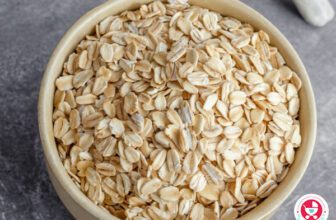
Vaccination is one of the most important preventive healthcare steps a parent can take. The right vaccines at the right time protect babies from serious diseases like polio, rotavirus, measles, hepatitis, and more. For 2025, parents in India need to understand both the National Immunization Schedule (NIS) and the IAP (Indian Academy of Pediatrics) guidelines, know what side effects are normal, and be aware of myths that may cause confusion.
1. What is the Vaccination Schedule in India in 2025
Here are the vaccines by age with what they protect against. These follow either the National Immunization Schedule / IAP updates. Always consult your pediatrician.
| Age of Baby | Vaccines Recommended | Diseases Covered / Notes |
|---|---|---|
| At Birth | BCG; OPV-0; Hepatitis B (1st dose) | Tuberculosis, Polio, Hepatitis B. Important to administer as soon as possible. EuroKids+3UNICEF+3Klay School+3 |
| 6 Weeks | DPT / Pentavalent (1st dose), IPV‐1, Hib‐1, Rotavirus‐1, PCV‐1, Hepatitis B-2 | Covers diphtheria, pertussis, tetanus, Haemophilus influenzae type B, rotavirus infections, pneumonia, reinforcing hepatitis B. Klay School+4EuroKids+4CK Birla Hospitals+4 |
| 10 Weeks | DPT / Pentavalent (2nd dose), IPV‐2, Hib‐2, Rotavirus‐2, PCV-2 | Continue strengthening immunity. CK Birla Hospitals+2EuroKids+2 |
| 14 Weeks | DPT / Pentavalent (3rd dose), IPV-3, Hib-3, Rotavirus-3, PCV-3 | Final primary doses in that cycle. Kauvery Hospitals Bangalore+2Klay School+2 |
| 6 Months | (Some optional vaccines or booster Hep B, depending on region / risk) | Check with your pediatrician whether additional boosters or optional vaccines are needed. Kauvery Hospitals Bangalore+2Sapling Hospitals+2 |
| 9 Months | Measles-Rubella-1, JE-1 (in endemic areas) etc. | Protection against measles, rubella; Japanese encephalitis in certain zones. Kauvery Hospitals Bangalore+1 |
| 12-15 Months | MMR-2 / Varicella or boosters, PCV booster, etc. Optional / IAP schedule expansions. | Varied by region / pediatrician. Sapling Hospitals+1 |
| Beyond 15 Months – Preschool / School Age | DPT / Td boosters, Optional vaccines per risk (HPV in girls, etc.) | To maintain immunity. Sapling Hospitals+1 |
2. Why Each Vaccine Matters (Disease Risk & Benefits)
-
BCG protects against serious forms of tuberculosis in infants.
-
OPV/IPV helps prevent polio, which can cause paralysis.
-
DPT / Pentavalent guards against diphtheria, pertussis (whooping cough), tetanus, Haemophilus influenzae type B.
-
Rotavirus helps prevent severe diarrhoea in infants.
-
PCV (Pneumococcal Conjugate Vaccine) helps prevent pneumonia, meningitis.
-
Measles‐Rubella protect against measles (can be severe) and rubella (especially relevant for pregnant women) etc.
3. Common Side Effects After Vaccination & What Parents Can Do
It’s normal and expected that babies will react mildly after some vaccinations. Here are common side effects, which are usually harmless, and tips / first aid care. (You can link to your same-topic article Emergency Baby Care – Fever and Why does my baby cry for no reason? for overlapping advice.)
| Side Effect | What It Looks Like | When It’s Normal | When to Call Doctor / Seek Help |
|---|---|---|---|
| Mild fever (low grade, <38.5°C) | Slight warmth, fussiness, maybe sleepiness | Usually within 24-48 hours after shots; resolves in 1-2 days | Fever above 39°C, lasts more than 2 days, or associated with rash, stiffness, etc. |
| Redness, swelling, tender bump at injection site | Slight swelling or hardness, possibly warm to touch | 24-48h; baby may avoid using that limb a little | If swelling spreads, gets very red, or baby seems in a lot of pain or unwell |
| Fussiness, irritability, decreased appetite | More crying, less feeding than usual | Usually mild, short-lived | If baby refuses feeding >24h, seems dehydrated, very sleepy |
| Diarrhoea or mild vomiting (rare with some vaccines like rotavirus) | Loose stools | If mild, small number, short duration | If frequent, signs of dehydration, blood in stool |
Tips / First Aid:
-
Keep the baby hydrated; continue breast-feeding.
-
Keep the injection site clean; avoid tight clothing or rubbing.
-
Use a cool compress for redness or swelling.
-
If fever, use pediatrician-recommended fever reducers (paracetamol) if required.
-
Comfort and cuddle: extra soothing helps with fussiness (this ties with your “Why does my baby cry for no reason?” article).
4. Common Myths & Misconceptions About Vaccination
| Myth | Reality / Facts |
|---|---|
| “Vaccines cause major side effects like autism or long-term harm.” | Extensive research has not shown vaccines cause autism. Minor side effects are expected; serious ones are extremely rare. |
| “Natural infection is better than vaccination.” | Natural infection can cause serious illness or complications; vaccines provide safer immunity without those risks. |
| “Too many vaccines overwhelm baby’s immune system.” | Babies are exposed to thousands of germs daily; vaccines are diluted for immune safety and schedule is designed so immune system can cope. |
| “Vaccines are not necessary if everyone else is vaccinated.” | Herd immunity helps, but undervaccination increases risk of outbreaks. Also, risk remains from travel, visiting unvaccinated communities. |
| “Side effects are dangerous and long lasting.” | Most side effects are mild and short-lived. Severe reactions are extremely rare; health systems are equipped to manage. |
5. How to Prepare for Vaccination Day
-
Ensure baby has eaten / had breast milk beforehand unless doctor advises otherwise.
-
Dress baby in loose clothing to make access to limb easy (for injection).
-
Carry vaccination card / record.
-
Ask doctor about optional vaccines (if part of IAP schedule or regionally recommended).
-
Plan aftercare: keep baby comfortable, plan for rest, have thermometer and comfort items ready.
6. Interlinking with Related Topics (Your Existing Articles)
7. When to Seek Medical Help / Warning Signs
-
High, persistent fever not responding to usual care.
-
Severe swelling at injection site with spreading redness.
-
Seizures, difficulty breathing, swelling of face/lips.
-
Any signs of an allergic reaction. Always call your pediatrician or go to hospital if in doubt.
8. FAQs
(These FAQs help capture what people search; good for SEO / LLM prompts)
-
What is the first vaccine given to newborn baby in India?
-
At what age does baby get measles vaccine?
-
Can I delay vaccines if baby had fever or illness?
-
Are optional vaccines necessary, and which ones?
-
How to manage vaccine side effects at home?
Conclusion
Vaccinations are a powerful shield against many dangerous diseases. The 2025 schedule in India offers clear guidance so parents can ensure their baby gets protection at the right time. Being aware of possible side effects, myths, and how to respond will give you confidence. Always maintain the vaccination record, follow the schedule, lean on your pediatrician, and keep your baby’s comfort and safety first.
Reference : NIS.
Disclaimer: This content was automatically imported from a third-party source via RSS feed. The original source is: https://drdad.in/baby-vaccination-schedule-india-2025/. xn--babytilbehr-pgb.com does not claim ownership of this content. All rights remain with the original publisher.






